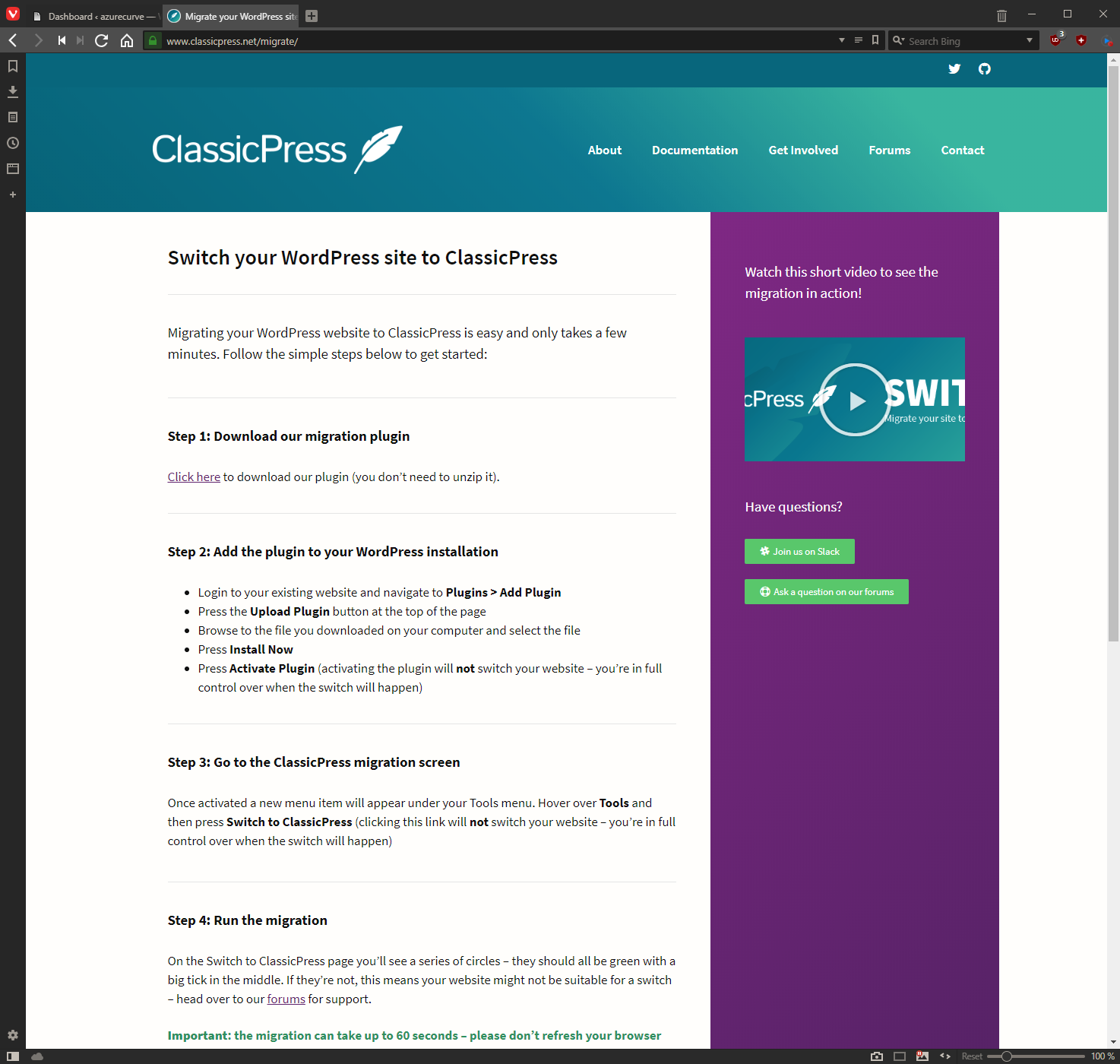 This post is part of a series on migrating to ClassicPress from WordPress.
This post is part of a series on migrating to ClassicPress from WordPress.
As mentioned in the series index post, ClassicPress is a fairly recent fork of WordPress which has announced itself as ready for use on live sites. Initially as a response to the inaccessible Gutenberg, they are now positioning themselves as a CMS business-focused CMS which is modified and enhanced version of WordPress (without Gutenberg) that serves the business website market
.
From the About ClassicPress page, ClassicPress styles itself as a community-led fork of the WordPress content management system who wants to get back to basics and focus on open dialogue and democratic decisions. This is reflected in the mission statement and the Petitions site.
Like WordPress, ClassicPress is released under the GNU General Public License version 2 (GPLv2) (or later) license from the Free Software Foundation.
I’ve been a user of WordPress for almost 8 years and have been developing plugins for WordPress for quite a while. I’ve known about Gutenberg for a while, but only really delved into it farily recently.
If you’re hearing about it now for the first time, I did a post recently which might be useful: What is Gutenberg (for WordPress)?
I also did a post WordPress and the Problem With Gutenberg and why it is unusable to me. Some of my friends use WordPress5 now and are happy with the new Gutenberg block editor, as are many people online, but there are also many people who are unhappy with the new Gutenberg block editor.
One of the other issues with the development of WOrdPress, is the lack of transparency and development direction which appears to be completely controlled by Automattic. WordPress.org is, in theory, the independent open source project. However, the creation of Gutenberg appears to have been decided upon and drbvien by Automattic to benefit Automattic’s wordpress.com site.
The ethos of ClassicPress, is that the community will decide the development direction by way of the Petitions site.
ClassicPress v1 is fully compatible with WordPress 4.9.x and will remain so; ClassicPress v2 will potentially start to diverge from WordPress, but this will be by the petitions logged and voted upon by the community.
ClassicPress appears to align better to the type of sites I run, and the democratic structures for development offers the best opportunity for this to continue to be true going forward.
 This post is part of a series on migrating to ClassicPress from WordPress.
This post is part of a series on migrating to ClassicPress from WordPress.




